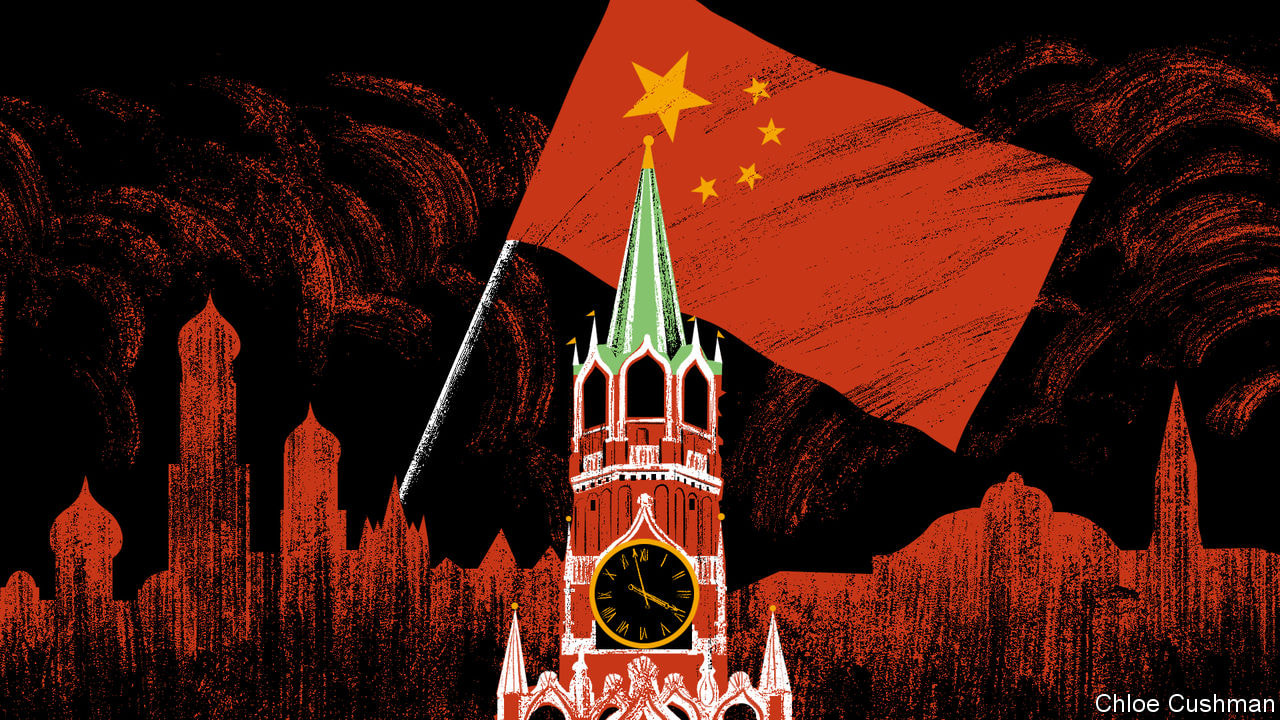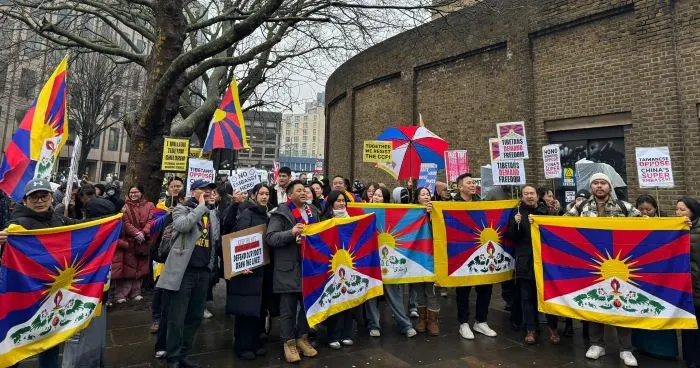Give something; Get something: Chinese politics
Beijing purged party heads in Hubei and Wuhan, replacing them with former Shanghai mayor Ying Yong and Wang Zhonglin, ex-party boss of the city of Jinan in Shandong province, to tackle the outbreak. Chen Yixin, secretary general of the Central Political and Legal Affairs Commission, was appointed deputy head of the national team overseeing the fight against the virus in Hubei under vice-premier Sun Chunlan.
In a matter of months, Beijing declared victory in containing the outbreak while maintaining one of the lowest death tolls in the world. Ying, Wang and Chen were praised for their speedy handling of the Covid-19 pandemic and tipped for promotion to more important roles. The trio of “crisis fixers” offer clues about what it takes to climb the party ranks.
https://multimedia.scmp.com/2019/graphics/launchers/20220811R.html Ying, 65, a member of the party’s Central Committee, was recently promoted to deputy party secretary of the Supreme People’s Procuratorate and will take over as the country’s top prosecutor in March.
Wang, 60, was promoted from Wuhan party chief at the height of the Covid-19 outbreak to Hubei governor last May.
Meanwhile, 63-year-old Chen is an expert on maintaining social stability after three decades in Xi’s old power base of Zhejiang province and is considered a key lieutenant to the Chinese president.
In addition to their ability to handle crisis, the men sent to battle the virus in Hubei share other traits now seen as requirements for top party positions: a proven record of competency, the ability to earn Xi’s trust, a highly educated background and strong regional leadership experience.
“Their experience in managing major municipalities and provinces and extensive record in politics and law have shown Xi’s very clear preferences when it comes to personnel, especially in times of a national crisis,” said Dali Yang, a political scientist at the University of Chicago.
With Xi expected to secure his third term as the party chief at the 20th Party Congress, he is looking for a team that can implement his plans to achieve the target of creating a modern socialist China by 2049 – the centenary of the founding of the People’s Republic of China.
Analysts said governing two major provinces – especially an economically underdeveloped border region like Xinjiang or Tibet – and ministerial experience can serve as a testing ground for senior cadres to demonstrate their capability and potential flaws.
https://multimedia.scmp.com/2019/graphics/launchers/20220811C.html Many poised for top spots also share close connections to Xi and his trusted aides and have professional expertise in areas such as technology and business.
Several of Xi’s former associates in Zhejiang and Fujian provinces are expected to be promoted to even higher positions at the congress, according to Alfred Wu, an associate professor at National University of Singapore’s Lee Kuan Yew School of Public Policy.
One high-flyer is Shanghai party chief Li Qiang, who remains in contention despite public discontent about his handling of the city’s two-month Covid-19 lockdown earlier this year. Li was Xi’s secretary for three years while Xi was party chief of Zhejiang province. He also served as Jiangsu’s provincial party chief for two years before taking over the role in Shanghai.
He Lifeng, who is in charge of the National Development and Reform Commission, is seen as a top contender to enter the Politburo, which currently has 25 members. He was Xiamen’s financial chief when Xi was the city’s deputy mayor in charge of finance from 1985 to 1988. He also served as Tianjin’s deputy party chief and the head of its political consultative conference.
“There shouldn’t be any surprises that He Lifeng will take over from Liu He,” Wu said. Liu, a vice-premier, has served as Xi’s economic tsar for the past five years but is now 70 – past the usual retirement age for Politburo members.
https://multimedia.scmp.com/2019/graphics/launchers/20220811P.html Some other regional chiefs are also seen as strong candidates for advancement, even though they did not work directly with Xi before he became president. Guangdong party boss Li Xi previously served as Liaoning’s party chief and was secretary to Gansu party chief Li Ziqi, a close associate of Xi’s father Xi Zhongxun. Fujian party secretary Yin Li and Shanghai mayor Gong Zheng are also in the running for promotions.
“The two Lis [Li Qiang and Li Xi] are leading candidates for the next Politburo Standing Committee, and others rank top for the next Politburo,” Cheng Li, director of the Brookings Institution’s John L Thornton China Centre, wrote in a commentary for the China-US Focus website in March.
Apart from placing confidants in key government jobs, Xi has also installed many people he trusts in positions overseeing the management of party affairs, according to Tsai Wen-Hsuan, a researcher with the Taiwan-based Academia Sinica’s Institute of Political Science.
“The party affairs system is where Xi grips the hardest to secure his power, a lesson learned from the former Soviet Union’s collapse due to its loose party affairs management,” Tsai said.
Li Shulei, former vice-president of the Central Party School and a close aide of Xi, was appointed as the executive deputy chief of the propaganda department in June. He is seen as a likely successor to propaganda chief Huang Kunming, which would also see him join the Politburo.
Tsai added that Xi’s hold on law enforcement agencies was also strong. Wang Xiaohong, a former subordinate to Xi in Fuzhou, Fujian’s provincial capital, took over as public security minister in June, becoming the first career police officer to take the job in decades. Wang is set to take on the additional title of state councillor in March.
https://multimedia.scmp.com/2019/graphics/launchers/20220811L.html Under Xi, the Central Committee has become the most educated one in the party’s history, with 28 per cent of its full members holding doctorates and 12 per cent having received some education overseas, according to a report published by the Paulson Institute’s MacroPolo [corr] think tank in May.
But analysts noted that education alone was not enough, as cadres with expertise in science and technology, military and finance and leadership experience in state enterprises have been favoured for their ability to spearhead Xi’s global technological ambitions.
The MacroPolo report said the promotion of technocrats has picked up pace since Xi began his second five-year term as the party’s general secretary in 2017, with 17 out of 30 top provincial promotions going to cadres with STEM backgrounds, compared with six out of 23 during his first term.
As Xi pushes for technological innovation to rival the United States and achieve China’s goal of becoming a modern socialist society, state enterprise executives from the aerospace and military industries have increasingly been appointed to ministerial and regional chief positions.
According to a tally by the Post, 33 out of 62 top provincial officials hold engineering and science degrees, while 13 have backgrounds in social science such as Marxist political theory and nine others have economics or finance degrees.
Ma Xingrui, Xinjiang’s regional party secretary and former general manager of China Aerospace Science and Industry Corporation, is seen as a front runner to join the policymaking Politburo, according to analysts.
Zhejiang party chief Yuan Jiajun and Hunan party chief Zhang Qingwei were both aerospace engineers, while Zhang Guoqing, former chief executive of military contractor North Industries, one of China’s biggest defence conglomerates, is Liaoning’s party chief.
Both Ma and Zhang previously served as chief commander of China’s Shenzhou space programme, and Yuan has held key positions in China’s lunar and Mars exploration programmes.
Shandong party chief Li Ganjie and Beijing mayor Chen Jining are both leading experts on environmental protection, while Fujian party chief Yin Li and Hainan party chief Shen Xiaoming are both doctors.
Yang of the University of Chicago said the technocrats’ appointments showed that their discipline and avoidance of political manoeuvres had won Xi’s favour.
“Their quasi-military management style – especially among former executives with aerospace and military industry backgrounds – means they are likely to be more obedient and insulated from external influences such as corruption,” Yang said, adding that those were qualities Xi was after.
Apart from cadres with science and technology backgrounds, investment-focused officials, many born in the 1970s, have also been appointed to senior provincial positions as China faces a deflating real estate bubble and slowing economy.
“A close look at the career patterns of these [1970s generation] rising stars reveals that many of them have had broader leadership experience in China’s flagship enterprises or major financial institutions,” the Brookings Institution’s Cheng wrote in an analysis published in May.
Among the 108 highest-ranking leaders born since the 1970s, 86 of them – or 79.6 per cent – serve as vice-governors and members of provincial party standing committees. Of those 86, more than half have primarily advanced their careers in industrial enterprises or financial institutions rather than local administrations, he added.
Loyalty still counts when it comes to promotions. In the words of Chen Xi, the head of the party’s Central Organisation Department, “cadre loyalty remains the soul of politics”.
In the final run-up to the congress, senior officials have rushed to pledge allegiance to Xi’s absolute leadership and governance doctrines, exalting him as a “beacon”, “compass” and “fulcrum”.
However, while political loyalty remains important for all leaders, it is difficult to measure, as breaking with Xi’s policy would result in damage to one’s political career, according to Rana Mitter, professor of modern Chinese history and politics at the University of Oxford.
“Loyalty in the Xi era is highly tied to demonstrable devotion to the top leader personally, which was somewhat similar to that with the era under Mao [Zedong]. But loyalty [then] was combined with a fairly clear ideological agenda, notably Soviet-style economics in the 1950s and violent class struggle in the 1960s,” Mitter said.
“In the Xi era, ideology is in flux, with new gestures toward concepts as varied as global tech ambition and a return to a reinterpreted traditional Chinese philosophy. So figures who are perceived to be close to Xi are not necessarily tied to any particular ideological position,” he added.
“I would measure a cadre’s loyalty perhaps by seeing how much he or she uses terms that are specific to Xi. Take last summer for instance, that might have been ‘common prosperity’.”













